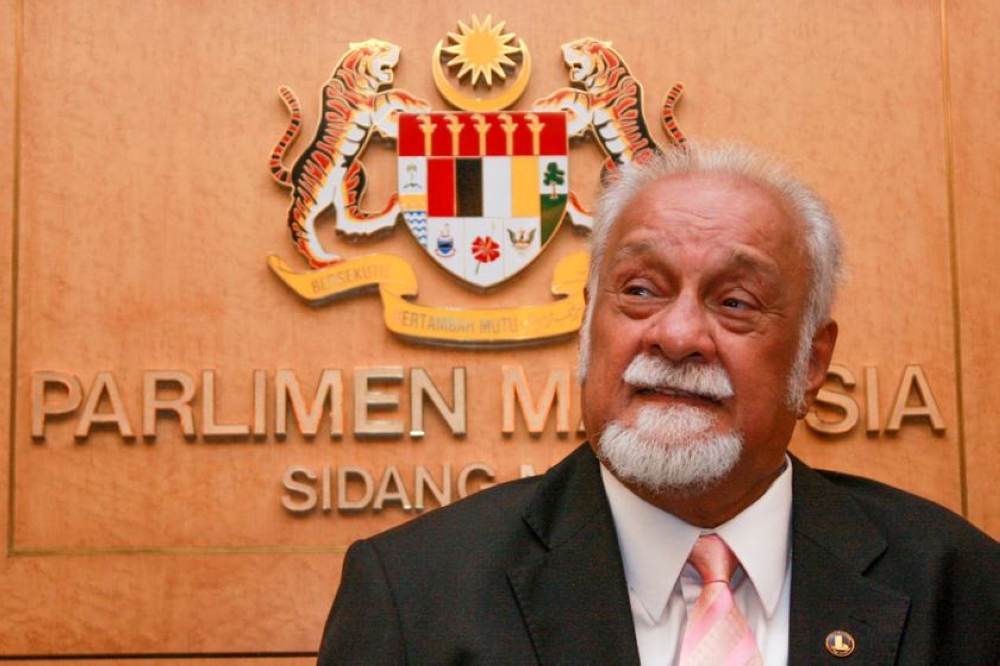APRIL 18 — Karpal Singh is a towering Malaysian whose commitment and dedication to justice, the rule of law and good governance must be borne by the new generation of Malaysians.
We want not just one towering Malaysian in the person of Karpal Singh but many towering Malaysians and a towering Malaysian nation that can contribute to justice, the rule of law and good governance in the world.
We have had five Prime Ministers in five years and recent years, we were striving not to be a towering Malaysia, but were headed in the direction of a divided, failing and failed state.
Can we become a towering Malaysia contributing to justice, the rule law and good governance in the world?

No race, culture or religion in Malaysia wants to hurt or harm another race, culture or religion in Malaysia, and this is best illustrated by the Ladang Bikam story of “Bangsa Malaysia” where a group of Chinese villagers from Kampung Pelawan, Perak came out in the dead of night to help guide stranded Malay travellers make their way back to Kuala Lumpur after the Hari Raya festivities.
Last week, Malaysia celebrated six festivities, a testament to the country’s diversity — Hari Raya Aidilfitri, Ugadi, Tamil New Year, Vaisakhi, Vishu Day, and Songkran.
One of the greatest assets of Malaysia is our in ethnic, linguistic, cultural or religious diversity which is given recognition in the Malaysian Constitution and especially the Rukun Negara, which states the five principles for Malaysia to be a great world-class nation, namely the five principles of:
1. Belief in God;
2. Loyalty to King and Country;
3. Supremacy of the Constitution;
4. Rule of Law; and
5. Courtesy and Morality.
Equally important is the Preamble to Rukun Negara which declares the nation’s commitment to achieve a more “perfect unity amongst the whole of society”, “preserving a democratic of life”, “creating a just society where the prosperity of the country can be enjoyed together in a fair and equitable manner”, “guaranteeing a liberal approach towards our traditional heritage which is rich and diverse” and “building a progressive society that will make use of science and modern technology”.
The gap between the reality today from these objectives are a measure of how much we have deviated from the principles of the nation’s founding fathers and we have to ponder and find a way back — no better an occasion that on the 10th anniversary of the untimely passing of Datuk Seri Karpal Singh.
I have just returned from a private visit to Beijing where I was privileged to visit the temple of Wen Tianxiang. Volume One of Kee Thuan Chye’s biography on me (page 140) reads:
“On the third day of his detention, Kit was pleasantly surprised when Compound C screened a Chinese movie called Guo Hun (The Soul of the Nation).
“This was the same movie he had seen in Batu Pahat when he was a student in the 1950s. It was about Wen Tianxiang, the poet politician who refused to kowtow to the Mongol invaders in the 13th century China and was therefore arrested, tortured and executed, only to become a symbol of patriotism...
“Kit related to it well, too, because Wen Tianxiang had had a significant impact on him from young. “He was a person prepared to die for his beliefs and love for his country. But in this case, the love for your country must be for your country,” he stresses.
When our forefathers, whether one, two, three or more generations ago left China or India to come here, it was to eke out a living but they always regarded China or India as home to return to. But to those born in Malaysia, Malaysia is home and I do not think there is any local-born Malaysian today who regard China or India as home to return to.
I have visited China a number of times, and I do not feel at home in China. When my flight enters Malaysian air space, I feel “home-coming”.
We are not China Chinese or India Indians. We are Chinese Malaysians or Indian Malaysians. Our first thought is Malaysia, and not China or India.
But we have a contribution to make. I believe that with our diversity, Malaysia can make a contribution to promote greater global dialogue, understanding and harmony among the great cultures, religions and civilisations which also meet in Malaysia — Malay/Islamic, Chinese, Indian and Western and make a contribution to global peace, understanding, development and prosperity in the process.
* This is the personal opinion of the writer or publication and does not necessarily represent the views of Malay Mail.





















